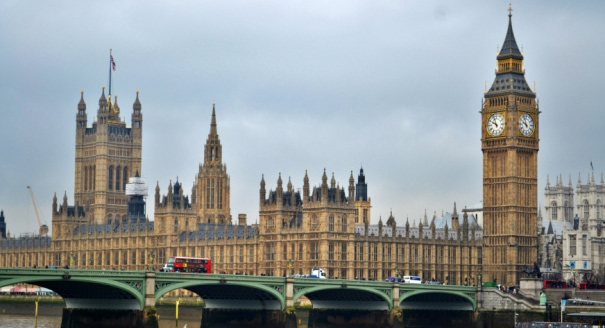What an election!
Defying the opinion polls, British Prime Minister David Cameron’s Conservative Party has secured another victory after the UK general election on May 7—and with a majority at that.
This could be the great chance for Cameron to reverse what has almost turned into the inevitable: Britain leaving the EU.
The opposition Labour Party is unlikely to play a serious role in this debate. For this beleaguered party, which was trounced in the election, there is no talk about being a coalition partner with the Conservatives. Nor is there any possibility of postponing an EU referendum, something that Labour at one stage was pondering.
This is a good thing. The festering boil has to be lanced.
For far too long, successive British governments have fenced with the EU institutions over policies and competences. Looking back, it’s a wonder that Britain ever joined the EU. Yet it was a Conservative prime minister, Edward Heath, who took the UK into the EU’s predecessor in 1973.
Since then, aside from an in/out referendum in 1975, successive British governments have refused to really sell the idea of Europe—let alone have a real debate about Britain’s future, inside or outside the EU.
Look how, during this year’s election campaign, the political parties shied away from the issue. With the odd exception, they pretended the EU simply wasn’t there. Instead, it was, understandably, the economy that was the number one issue.
The perception that the economy would be in better hands under Cameron’s chancellor of the exchequer (finance minister), George Osborne, than under any Labour government was what gave Cameron a second tenancy in No. 10 Downing Street, the prime minister’s official London residence.
Getting back to the referendum, whatever disdain some European leaders hold for plebiscites, it is important that EU citizens can vote on their country’s future in the union.
Britain’s pending referendum has several implications for Cameron and other EU leaders. The geostrategic considerations of Britain leaving the EU must not be underestimated—and British and EU leaders should spell that out.
Moreover, if EU leaders genuinely want and need Britain to stay in the EU—and if Cameron believes deep down that Britain’s place is inside the EU—then the big question facing the prime minister and his EU counterparts (especially German Chancellor Angela Merkel) is what both sides can give to keep the UK in.
If #Cameron believes #Britain should remain in the EU, he must campaign for it.Tweet This
And Cameron, if he believes that Britain should remain in the EU, must campaign for it.
This does not mean pandering to the populist and anti-immigration UK Independence Party (UKIP). Preliminary results show that UKIP is set to become the third-largest party in terms of votes cast. But those votes won’t be translated into seats: Britain’s electoral system is based on the principle of “first past the post,” in which each constituency is won by the one candidate who receives most votes, and not on proportional representation.
With the kind of support UKIP won, it behooves Cameron to tell the truth about the economic role of immigrants and about the EU.
Clearly, the Labour Party is out of the picture when it comes to Europe. The party will now be preoccupied with its own leadership crisis after Ed Miliband stood down as leader. As for the Liberal Democrats, Cameron’s hapless coalition partner, the election all but wiped them out.
The party that sucked Labour dry and that will be important for the EU debate is the secessionist Scottish National Party (SNP). It won 56 of Scotland’s 59 seats, becoming a powerful voice in the UK’s 650-member House of Commons.
With such a strong SNP, Cameron knows what he is up against: a Scotland that wants far more autonomy from London. Failing that, SNP leader Nicola Sturgeon could use her victory to revive the issue of Scottish independence, which was rejected in a referendum in September 2014. And because the Scots are by and large pro-European, Cameron can ill afford to ignore their politics and their policies.
No wonder Cameron was quick to reach out to the SNP. He promised more autonomy “by implementing as fast as we can the devolution that we rightly promised . . . for Wales and for Scotland.”
It is also time for Cameron to start the debate about the EU and say publicly where he really stands. If he doesn’t exercise this leadership, his European counterparts cannot help him. Brexit could become a self-fulfilling prophecy.








